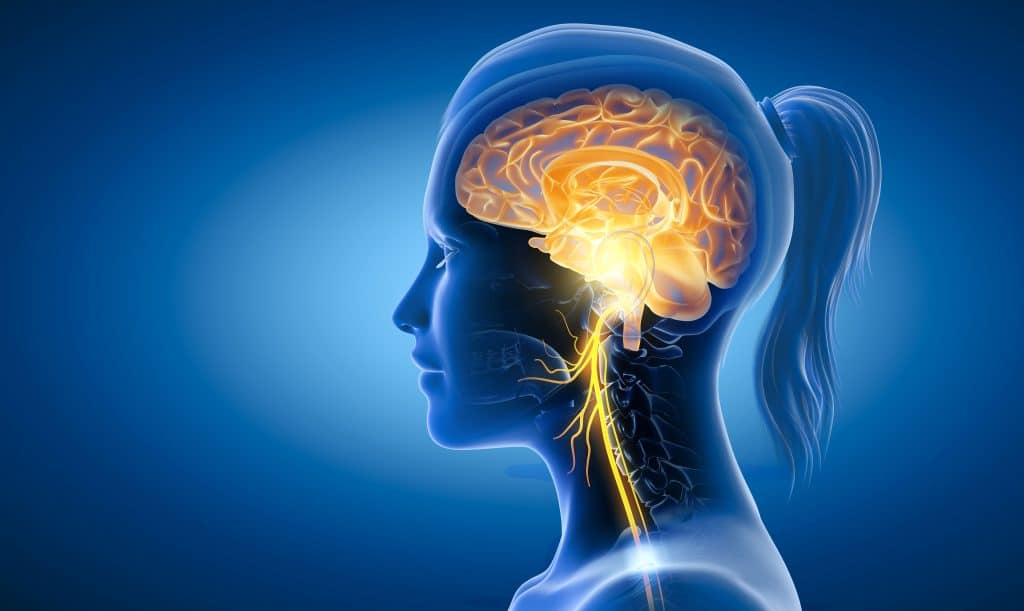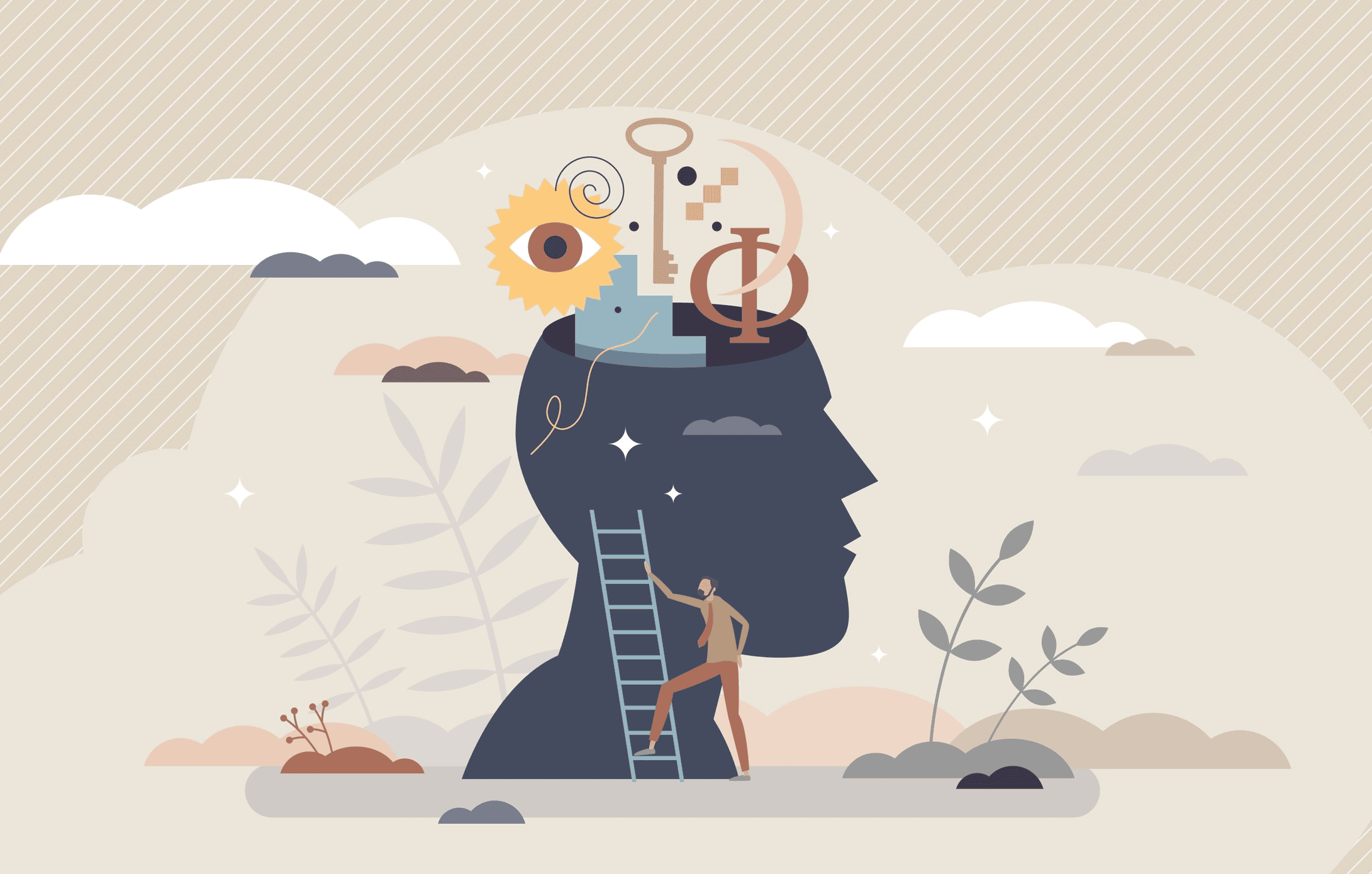Have you ever wished that there was some scientific evidence you could point to that would prove how profound an effect our faith has on our physical bodies and mental health? Or maybe you’re hoping to prove that a divine presence doesn’t exist, so you’re looking for studies that assess the mind’s ability to create illusions and imagine spirituality.
If the new field of neurotheology has taught us anything so far, it’s that you won’t find the dismissal of a divine presence here. In fact, scientists seriously following these studies are calling for open-mindedness about how impactful religion and faith practices can be for our minds, bodies, and spirits.
Neurotheology evidence is being compiled using brain scans and vital monitors to show the differences in anatomy and brain activity between religious and non-religious people and how increased religious practice can improve our brain function over time! That’s not to dismiss other effects, either, regarding how faithful devotion to a God and rituals can change our hearts and spirits.
What is Neurotheology?
In simple terms, neurotheology is a subsection of neurology that focuses on the impact of religious practices on people. Scientists in this field wish to understand the relation between religion and the brain.
Neurotheology is a new field, and there is friction for many reasons. To begin, scientific and religious leaders have never been at greater odds with each other–the political divide, sweeping generalizations, and the creeping hatred taking over many hearts have set those with religious views against those who glorify science. While there’s no reason at all that science and religion should clash, it can be challenging to move past differences and assumptions born out of these challenges.
At the same time, there is a divide even within science itself. A common misunderstanding of neurotheology has caused miscommunications and incorrect attributions to the term. At first glance, many might think the field is a religious take on neurology. Leading neurotheologists are working to define and refine the word so it is only applied to truly neurotheological studies.
While the field of neurotheology is still young, the studies have shown amazing and promising results so far. Evidence for religious practice changing our brain function, for instance, spans across religions and demographics, even in some cases to help those who suffer from brain disorders!

Leading Neurotheology Studies
Dr. Andrew Newberg is one of the leading scientists who has paved the way for neurotheology. He has even authored a book called Principles of Neurotheology in which he has sought to set the story straight about the field and its potential. His work has mainly focused on brain scans to show brain function differences across religious and non-religious practices and their effects over time.
In one of his most fascinating studies, Dr. Newberg started with a group of older adults experiencing memory difficulties and taught them a meditation mantra. Over 8 weeks using meditation for only a few minutes per day, that group of elders was able to reshape their brains and improve their memory! The most compelling finding from this neurotheology study is that we no longer have to rely on subjective reports from the study participants but can confirm with scientific evidence that the memory areas of their brains improved function.
Dr. Newberg explained that this improved function at about 10 to 15% was achieved only after two months. You can only imagine the effects this same study would have over years to mimic those who are religious for their entire lives.
Beyond basic brain function, many neurotheology studies have linked religious practices and spirituality to improved mental health. Lower rates of suicide, depression, and anxiety have been found in people who use their faith practices as a form of coping with stress and understanding the world around them. Scientists delving into these studies have linked these mental health improvements with the physical practices that most religions promote, such as participating in the community, avoiding bad habits, and even better dietary choices like meat avoidance.
But that’s not the end of it! While many would seek to explain away the effects of spirituality on the brain by using the excuses above, neurotheology experts like Dr. Newberg emphasize that spirituality itself changes the way the brain functions beyond just improved memory. In fact, meditation and prayer can increase the effectiveness of the brain’s ability to modulate emotional responses and the release of hormones like serotonin and dopamine.
Finally, religious therapies have even been proven to improve symptoms for those who suffer from ADHD, Alzheimer’s, and epilepsy.
Philosophical Angles of Neurotheology
Aside from trials and experiments, several sects of neurotheology are approaching the field from a philosophical angle. Some scientists are claiming that there must be a spiritual predisposition of the brain or human genetic makeup if religious practices change the function of the brain so drastically. Taking it further, some are working to apply quantifiable measures to a person’s spirituality.
Opposers question whether the two fields–neurology and spirituality–could ever be empirically linked beyond how some rituals train our brains to work differently. Some have posed a striking question of whether atheists and agnostics are defective if they do not possess a predisposition to spirituality.
Again, the field of neurotheology is still young. When push comes to shove, it is questionable if science and religion will ever entirely disprove the other. Thankfully, some scientists are willing to stay open-minded and operate assuming that both science and religion can exist in harmony!
What Does the Evidence Mean for Worship?
Faith-filled spiritual people can look to neurotheology studies as even more reason to delve deeper into our practices! If it’s proven that spiritual practices, including deep prayer and meditation, can shape our brains and improve their function, then that lends even more support to practicing our rituals and daily practices.
The results are also a huge breakthrough during our mental health crisis across all groups. Spirituality reminds us we’re not separate from each other or the Divine and feel a sense of oneness and purpose. We can find solace in others and the divine presence. Those with mental health issues can find strength to turn away from bad habits and toxic cycles that worsen their situation. Instead, they can turn to spirituality tools, such as prayer and meditation to find balance, peace, and harmony with the Universe.

REMEMBER!
While scientists are working to find more evidence for the effect spiritual practices have on the brain, please realize that these are only suggestions to help. You are far more powerful than you realize. It might also be that you have other influences in your life that might greatly enhance your ability to receive what you desire.
To improve your vibration, luck, and happiness, spend time chanting Sanskrit mantras and love-filled sutras. Pray for others and the Universe prays for you.
YOU ARE LOVE!
You are a beautiful Living Being filled with light and love, born from stardust. You are unlimited potential in every direction. With a focus on discipline, virtue, and your own goodness, you can become as expanded and liberated as you desire.





